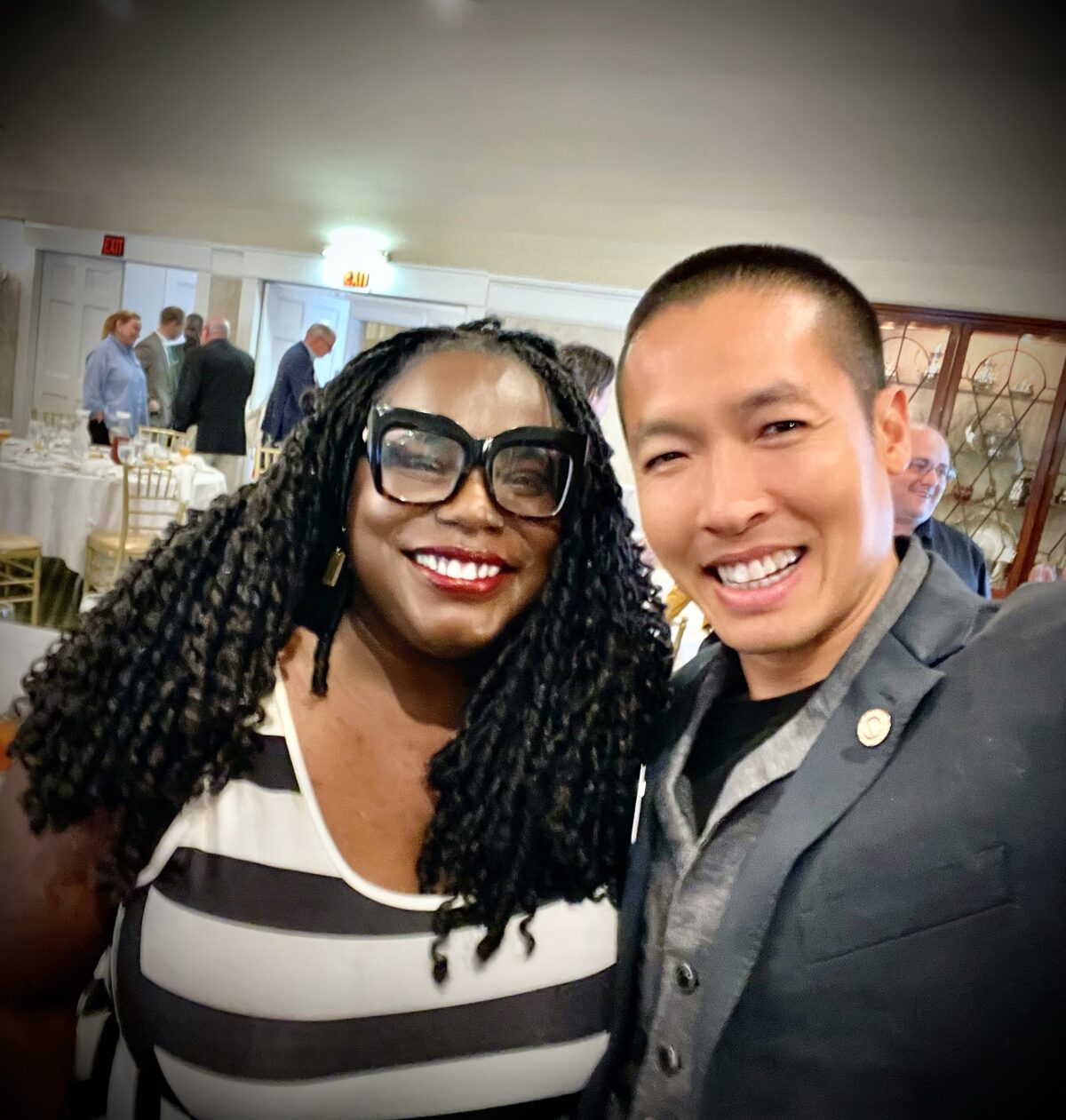Louisville, Kentucky, known as the gateway to the South, is a city rich in history and culture. At a recent Rotary Club of Louisville meeting held at the Woman’s Club of Louisville on 1320 S 4th St, Louisville, KY 40208, two remarkable figures found a connection in their shared values and visions for a better world. Di Tran, the author of “Drop the ME and Focus on the OTHERS” and the soon-to-be-released “Drop the FEAR and focus on the FAITH”, was deeply impacted by the words of Hannah Drake, the renowned poet, author, and social advocate.
Hannah Drake, known for her powerful poetry and spoken word performances, is a figure who embodies pride in her heritage and has always been an advocate for social change. She took the stage with grace, and her opening words were poignant, “Space, my space, your space, our space.” These words resonated deeply with Di Tran, who himself is often heard in his speeches saying “USA is the number one country on earth”, indicating his love and responsibility towards his adopted homeland.
As Hannah emphasized the significance of history and the importance of knowing where one comes from, there was an echo in the room. For her, acknowledging your roots and origin is crucial, as it grounds you in your identity. She believes that this grounding provides a foundation upon which individuals can build and work towards contributing value to society and fulfilling their roles as citizens.
This sentiment struck a chord with Di Tran, whose writings often stress the importance of altruism and positive contribution to the community. His first book, “Drop the ME and Focus on the OTHERS,” encourages individuals to look beyond themselves and consider the impact they can have on those around them. His upcoming book, “Drop the FEAR and focus on the FAITH,” is expected to delve further into overcoming personal limitations and embracing a larger vision for the common good.
In an age where division often seems more prominent than unity, the encounter between Hannah Drake and Di Tran symbolized a kindling of shared beliefs. They are both advocates for not only embracing and being proud of one’s heritage but also using that foundation to build bridges and contribute positively to society.
As members of the Rotary Club, an organization with a longstanding history of service and community building, their message was particularly apt. The resonance between Hannah’s emphasis on space and history, and Di’s focus on contribution and faith, reminds us that there are universal values that can unite people from diverse backgrounds.
In closing, this meeting was a reminder that regardless of where we come from, it’s where we’re going that counts. Hannah Drake and Di Tran are two figures that exemplify this, and through their words and actions, they continue to inspire all of us to stand tall and contribute to the tapestry of this great nation.




